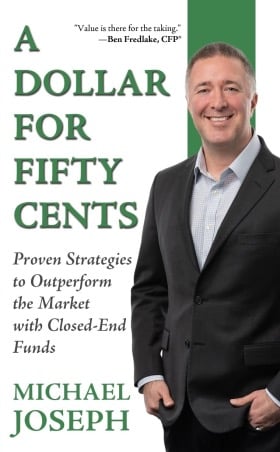“Every individual . . . intends only his own gain; and he is in this . . . led by an invisible hand to promote an end which was no part of his intention . . . By pursuing his own interest, he frequently promotes that of the society more effectually than when he really intends to promote it.” — Adam Smith, The Wealth of Nations
In a book nearly 400,000-words long, the above quote is Adam Smith’s sole reference to the “invisible hand.” Nevertheless, his metaphor inspired the belief, particularly over the last half century, that laissez-faireism fosters economic development.
But contrary to the orthodoxies of classical and neoliberal economics, free markets do not, and never did, create perfect competition. Indeed, perfect competition is an urban legend that is easily debunked.
Demystifying the Theory
What assumptions underlie a perfectly competitive landscape?
1. Products and services are homogeneous, substitutable, and interchangeable.
Oddly, if true, this argument would justify market concentration, because product standardization increases the potential for economies of scale. A few major players often dominate industries with broadly indistinguishable products. The four ABCD firms — Archer Daniels Midland (ADM), Bunge, Cargill, and (Louis) Dreyfus — largely direct the global grain trade, and four major players exert a similar influence over the palm oil sector.
2. Firms cannot set their own prices.
“The price of monopoly is upon every occasion the highest which can be got,” Smith explains. “The natural price, or the price of free competition, on the contrary, is the lowest which can be taken, not upon every occasion indeed, but for any considerable time together.”
Yet many firms proactively influence prices. In retail distribution, supermarkets counterbalance the pricing power of Coors, Heinz, and other large brands by making access to consumers conditional.
Even when circumstances may not favor price-setting, market participants may still try to set them illegitimately. For example, energy trader Marc Rich + Co cornered the world aluminum market in 1988 and attempted to repeat the feat with zinc four years later.
3. The market is fragmented.
On the contrary, extreme concentration is common. Sectors as diverse as grocery stores, digital operating systems, social media, automotive, and audit all have only a few major players. Even consolidation-averse creative industries are far from immune: The five largest advertising agencies account for the bulk of the global market.
4. Consumers and producers have perfect information about products, substitutes, and prices.
We may know where in our neighborhoods to purchase cheaper bread or movie tickets, but in a digital and global economy with increasingly diverse sources of supply, there is simply too much data for us to sift through and too many variables for us to consider.
Comparison websites can help us bridge the gap, but they only operate in utilities and such commoditized services as energy, travel, and insurance.
5. Barriers and costs to market entry and exit are low.
For perfect competition, suppliers must have easy access to an industry as well as an easy out. But such conditions are rarely met. Think of sectors that require heavy capital commitments, such as semiconductors and aerospace — Airbus and Boeing; those that benefit from network effects, including social platforms; or those where a strong brand is nurtured over several decades of advertising spend, which gave us Coke and Apple.

Opening Up to Competition
The economist Léon Walras formulated the concepts of perfect competition and market equilibrium a full century after the publication of The Wealth of Nations.
Smith himself never framed his treatise in those terms, even if his views inspired many to do so in his name. His reference point was drastically different. The 18th-century marketplace was organized locally around farming communities and controlled by individual landlords as well as small textile and machine tool concerns established by craftsmen, alongside monopolies of artisans and merchants sometimes still operating as guilds. The Industrial Revolution was in its infancy and hardly noticeable — the phrase would first be recorded in 1799.
Corporations were government-backed agencies such as British East India Company and its European counterparts. State policies sought to guarantee domestic supply. In 1665, France’s first Minister of State Jean-Baptiste Colbert established a factory to manufacture mirrors, a popular luxury item of the day. That national monopoly would later become Saint Gobain.
In short, free markets did not exist in Smith’s time. But by the time Walras had enhanced the theory, they were meant to evolve, somewhat magically, towards an equilibrium with a set price for a given quantity of goods.
Market Equilibrium under Perfect Competition

Visible Sleight of Hand
According to modern economic theory, in an unregulated landscape, many buyers meet many sellers, and neither side of a transaction can unduly affect the price discovery process.
“Although Adam Smith could never prove his theory, he did have a point. Modern economists now know that there is a sense in which people’s selfish actions are led as if by an invisible hand toward a harmonious final result,” Paul Samuelson and William Nordhaus observe in Economics. “[A]n economy driven by perfect competition leads to an efficient level and allocation of inputs and outputs.”
But such an economy has never existed. In the 19th century, telegraphy, railroads, and other emerging industries quickly consolidated as small and local operators gave way to national juggernauts. Indeed, by 1900, seven railway companies controlled the US market, and Western Union had monopolized telegraphy, bypassing the postal monopoly.
In a free market, even corporations that have been broken up because of their monopolistic positions tend to reconsolidate. AT&T dominated the telecom industry in the United States for most of the 20th century. US regulators split it into seven independent regional operators, the “Baby Bells,” in the 1980s. Four decades later, after further market liberalization, the sector reconcentrated around three players: Verizon, T-Mobile, and AT&T, which had re-aggregated several Baby Bells.
It is a standard progression: Dismantled monopolies often reconstitute themselves. After the 1911 dissolution of Standard Oil into 34 separate companies, the surviving entities gradually revived their collaboration through mergers, joint ventures, and commercial partnerships. By the 1940s, the oil industry had rebuilt an oligopsony around seven companies — the Seven Sisters. Their influence only weakened after the creation of the OPEC producers’ cartel in 1960.

From Economics 101 to 21st-Century Economics
Nowadays, the only fragmented industries that avoid consolidation tend to have low barriers to entry and limited scale economies, such as tattoo parlors, or those that serve diverse or personalized needs, which renders commoditization difficult — as with the legal professions. But these are exceptions.
Various competitive advantages or “moats” that favor industry leaders underpin consolidation. These include economies of scale, barriers to entry, and improved negotiating power with suppliers and customers, according to Michael Porter.
New entrants have ambitions beyond disrupting the status quo; they also want to dislodge incumbents and secure market leadership. Entrepreneurs aim to maximize profits by becoming price-setters. Venture capitalists back start-ups that could dominate their industries.
Monopolies are market failures, according to economic theory. But in reality, they are the natural Darwinian endpoint of a constant battle over finite resources. No enterprise volunteers to restrain its growth. The ultimate goals are market supremacy and “supernormal profits.”
Supernormal Profits under Monopoly Conditions

In a free market, supernormal profits should be temporary glitches. Yet they persist in sectors as varied as Big Pharma, Big Tech, and Big Tobacco.
Smith and Walras would not recognize modern economies. Market dominance can endure. Suppliers are often in a position to set prices to the detriment of customers over extended periods. This state of affairs partly explains today’s sticky inflationary environment.

Imperfect Competition
“The mere presence of a few rivals is not enough for perfect competition,” Samuelson and Nordhaus write. As such, “the real world . . . is for the most part to be classified in the realm of ‘imperfect competition.’”
But “imperfect competition” does not quite describe reality either. Free markets induce oligopolistic rather than monopolistic behavior because regulators stand in the way. Without anti-trust legislation, monopolies could very well prevail in most industries.
For example, in the United Kingdom, regulatory authorities have curbed consolidation among gas stations, a retail sector usually thought to have limited room for price manipulation. Still, the top five UK gas station owners represent about two-thirds of motor fuel volume sales, while the top eight providers control 73% of outlets and 89% of sales.
Creative destruction through disruption, technological or otherwise, is a better antidote to monopolization. But that is a long and drawn-out process. Kodak ruled the photo film industry for much of the 20th century — until digitalization knocked it off its perch in the late 1990s. The major railway companies only lost their preeminence when the automobile gained mass appeal during the Roaring 1920s. Until then, they exacted significant economic rent.
From Invisible Hand to Highlander
Imposing a choice between the market’s invisible hand and government’s paralyzing hand, the textbook formulation that unregulated markets encourage a balanced competitive landscape is an illusion.
The tagline “In the end, there can only be one,” from the film Highlander is a more accurate description. Just as only one warrior in the movie can ultimately survive, if markets are left to their own devices, only a single participant is likely to emerge on top.

Smith envisioned a utopian world. Whatever the benefits of private enterprise — and there are many — the natural equilibrium of a market economy is not perfect competition but a grinding process of elimination and monopolization.
The last 250 years demonstrate that the pursuit of self-interest at times incidentally and accidentally promotes society’s interests. But it can also create a dystopia of collusion and monopolization as well as environmental degradation and other externalities. These are not temporary failures, in keeping with the law of unintended consequences, but rather constitutive features of free markets.
If you liked this post, don’t forget to subscribe to the Enterprising Investor.
All posts are the opinion of the author(s). As such, they should not be construed as investment advice, nor do the opinions expressed necessarily reflect the views of CFA Institute or the author’s employer.
Image credit: ©Getty Images / ShadeON
Professional Learning for CFA Institute Members
CFA Institute members are empowered to self-determine and self-report professional learning (PL) credits earned, including content on Enterprising Investor. Members can record credits easily using their online PL tracker.















